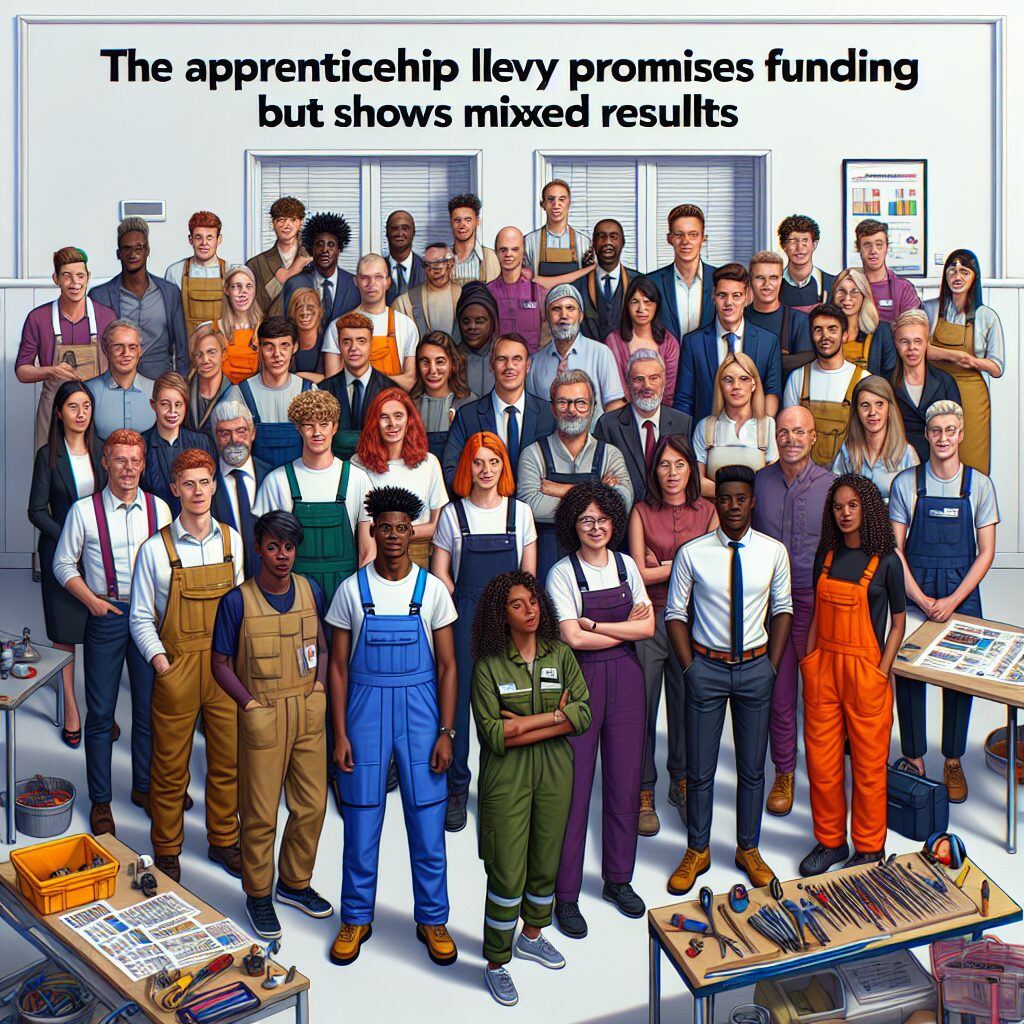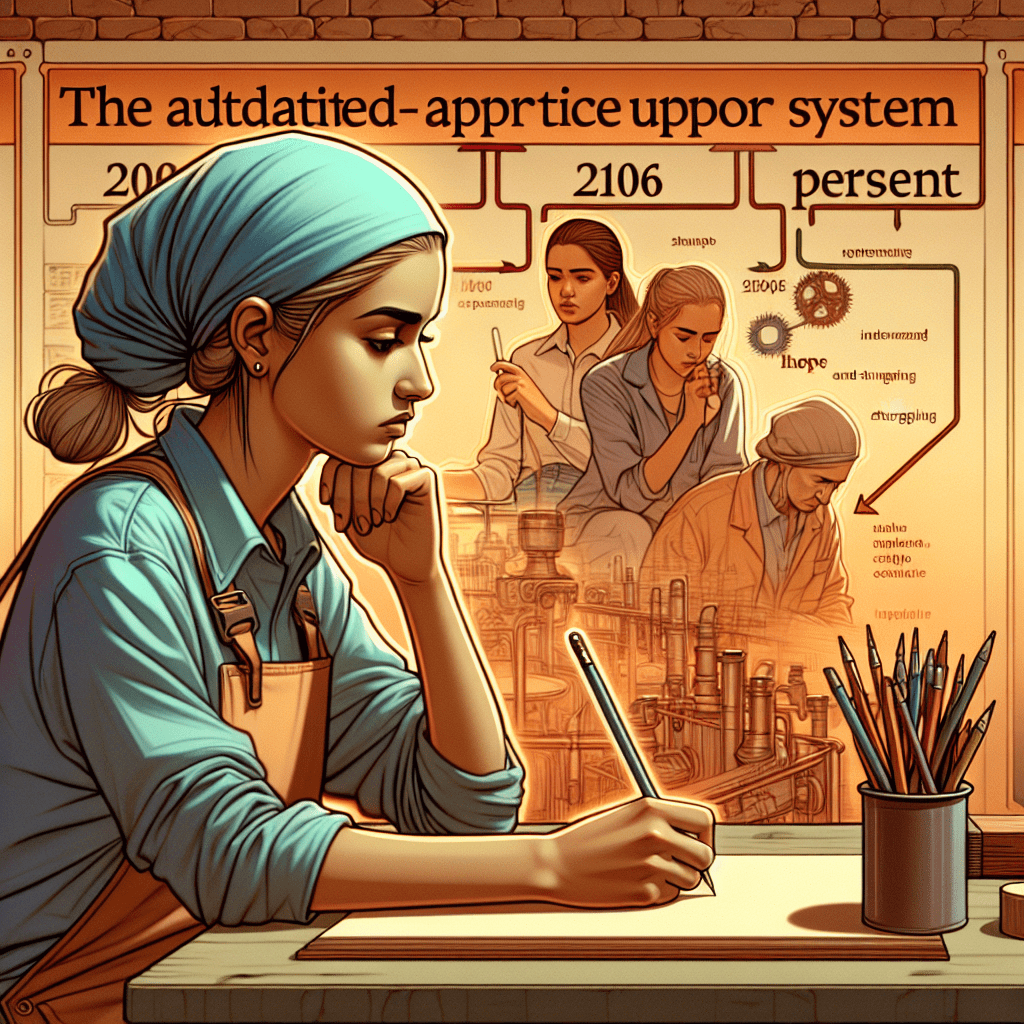
The Apprenticeship Levy: Opportunities and Challenges Ahead

The Apprenticeship Levy: A Double-Edged Sword
Have you ever felt excited about an investment, only to find it didn’t quite deliver? That’s the story of the apprenticeship levy in the UK. With the latest reports suggesting it will generate £5 billion sooner than expected, you might think we’re on the right track. But hold your horses—that money isn’t reaching our apprentices as it ought to. It’s like having a shiny new toy that doesn’t work as intended.
As a long-time advocate for learning and development, I can’t help but feel a tad frustrated. The intention behind the apprenticeship levy was solid: to create a skilled workforce for the future. However, the reality is mixed at best. So, what’s going wrong? It’s time for a chat about the nuances and challenges surrounding the apprenticeship levy, which promises so much yet delivers so little.
Are Resources Being Misallocated?
The crux of the problem lies in resource allocation. With the introduction of higher-level qualifications and new short courses, one has to wonder: are we really investing where it matters? Funds should be directed towards creating quality apprenticeship opportunities, not just master’s degrees or theoretical training that feels distant from the workplace. This misalignment could jeopardise the very essence of what apprenticeships should stand for.
Let’s be honest; if we’re throwing money at Level 7 qualifications, while the true essence of apprenticeships—as a bridge into skilled employment—gets sidelined, we’re missing the point. Are we ready to shift our focus back to the foundation of training pathways that work? I certainly hope so.
Transforming Funding into Real Opportunities
Now, let’s discuss how businesses can ensure that funding translates into genuine opportunities for apprentices. It’s no small feat, but it’s certainly achievable with the right strategies in place. Companies need to take a proactive role in shaping their apprenticeship programmes. Rather than simply ticking boxes to comply with regulations, they should invest time in creating meaningful, on-the-job learning experiences.
Feedback from current apprentices can be a goldmine for improvement. What are their challenges? What do they find useful? Listening to their voices can guide businesses in fine-tuning their programmes to better meet both apprentice and industry needs.
In my own experience, it’s this kind of connection—the real conversations—that fosters an environment where apprentices thrive. Investing in mentorship can create a supportive culture, enhancing the roles these apprentices play in the company. This way, everyone wins.
Strategies for Optimising the Levy
Now that we’ve tossed around some ideas, let’s talk strategy. How can we ensure that the apprenticeship levy becomes a useful tool rather than a hinderance? First off, collaboration is key. Businesses, training providers, and educational institutions need to join forces. Establishing partnerships strengthens apprenticeship programmes and can pool resources effectively.
Another method is to embrace innovation in training. Short courses and digital methods can supplement traditional apprenticeships, making them more adaptable to the fast-paced world we live in. After all, adapting to change is crucial in today’s job market.
Finally, it’s vital to regularly review and update training content. The landscape of industries is shifting constantly; our training efforts need to reflect that. We cannot afford to live in the past.
Conclusion: What’s Next for Apprenticeships?
The apprenticeship levy has the potential to be a fantastic opportunity for businesses and apprentices alike. Yet, as it stands, we must face the reality of its shortcomings. With the right approach, however, we can make significant improvements. Are we ready to harness the power of this levy for the next generation?
As someone who has seen the impact of effective training, I’m optimistic. Let’s have this conversation and work towards a future where the apprenticeship levy genuinely improves opportunities for all. What do you think we can do to make this happen? I’d love to hear your thoughts.
#CitySkills #Apprenticeships #TrainingInvestment



